
January 8th
It’s been a few weeks since returning to Canada and after a restful holiday in Victoria I’m settling back into life in Vancouver. Being back feels strange, yet it seems like the trip was ages ago now. Either way, I’ve had time to process my experiences and share lots of stories with family and friends. This final blog post covers my last week in China, including visits to Shanghai and Beijing. I’ve also received my film photos back, which I’ll include at the end of the post.
Our last week in China was a blast, as we packed in 30,000 steps in Shanghai, family meals back in Taiyuan, Beijing’s Forbidden City, and of course hiking the Great Wall on our last day. Saying goodbye to Chen’s family and friends was hard, but they made me promise to visit again soon. I’m so grateful to both Chen and his family for giving me such a fantastic experience and welcoming me into their family and culture. From meeting lovely people to eating endless delicious food, this trip was unforgettable.
We arrived in Shanghai on the night of December 15th and spent the next day exploring the city on foot. We walked around Jing'an, the beautiful old neighbourhood where our hotel was, grabbed a quick beef noodle soup at a hole-in-the-wall restaurant, and headed towards People’s Park. Having visited People’s Park in Chengdu, we expected something similar, but what we stumbled upon couldn’t have been more different.
At first, we noticed groups of people relaxing and playing chess, but as we kept walking we found a large group of older people sitting around with rows of papers laid out in front of them which we initially thought were advertisements. Chen quickly realized what this was: a marriage market—a place where parents of unmarried adults exchange information (like height, age, occupation, and income) to arrange potential matches for their children. While some parents were there to socialize, others were closely reading profiles to find potential matches for their kids.
After this surprising discovery we strolled down the busy Nanjing pedestrian road toward the Bund, a collection of colonial foreign trade buildings along the Huangpu River. From the Bund we also enjoyed a stunning view of the famous city skyline across the river. We then headed to Shanghai Old Street, an ancient shopping area modernized into a mall, where we had dinner at a Shanghai-style food court. The city is a unique blend of old and new, Chinese and Western—modern skyscrapers stand alongside traditional Chinese and European-style buildings. The next morning we visited Jing’an Temple, grabbed lunch, and flew back to Taiyuan for two more nights before packing up and saying our goodbyes to Chen’s family.
![NOODLE SOUP [2/15]](https://freight.cargo.site/t/original/i/368eee5a4c8e90657d68913933dfad3d3df18025f958ddc33a77fe01f0f32421/IMG_5045.jpg)
![RAPID DEVELOPMENT OF THE CITY [4/15]](https://freight.cargo.site/t/original/i/c2397b2b09e309d5a71d3de5dca76c13a4328f36b27afc53d1703a552665233d/IMG_5063.jpg)
![SHANGHAI DUMPLINGS [15/15]](https://freight.cargo.site/t/original/i/50e519cab5bf7dcffa4644b34a477af5360c2be3dd8f644ed1a39e0a4b680865/IMG_5211.jpg)
![HOTPOT [1/6]](https://freight.cargo.site/t/original/i/b77d814ce41c2f7b8b505e9ccd8083b4a04868c3477c3fd3d372c06b9eb3cb5d/IMG_4981_Original.jpg)
On December 19th we took a train to Beijing to explore the Forbidden city and the Great Wall. Built in the 15th century, the Forbidden City was home to 25 emperors over 500 years and is now a museum. The architecture is incredibly intricate and the scale of the palace is unbelievable. Passing through gates and courtyards, we eventually reached the Emperor’s steps, engraved with detailed dragons leading to the Emperor’s throne. Afterward, we walked to Tiananmen square, by far the most highly secured area we visited on the trip, and watched a large group of soldiers lower the flag—a ritual they perform every evening at sunset.
The next day—our last—we visited the Mutianyu section of the Great Wall. Being late in the season and less touristy, the area was nearly empty. We had stretches of the wall all to ourselves and hiked most of the section. The air was cold and dry, but the clear skies gave us perfect views of the wall winding over the mountains. We bundled up and took the gondola up to the wall where we explored watchtowers and climbed steep brick steps. On the eastern side is a metal slide that allows tourists to toboggan down the hill—an extra fun addition to the day. That night we had a delicious meal of Peking Duck, the perfect way to end the trip.
![PEKING DUCK [16/16]](https://freight.cargo.site/t/original/i/a134275a8161acef573705ffa2c455c95041d3a837e299cde1d70f4433eebc09/IMG_5551-2.jpg)
Thank you so much for following along with this blog. I’m so happy I was able to share my incredible experiences in China with you all. Writing this blog has also served as a journal for me, helping me preserve the amazing memories of this trip. I hope it gave you a glimpse into the beauty of China—I highly recommend visiting!
Film Photos
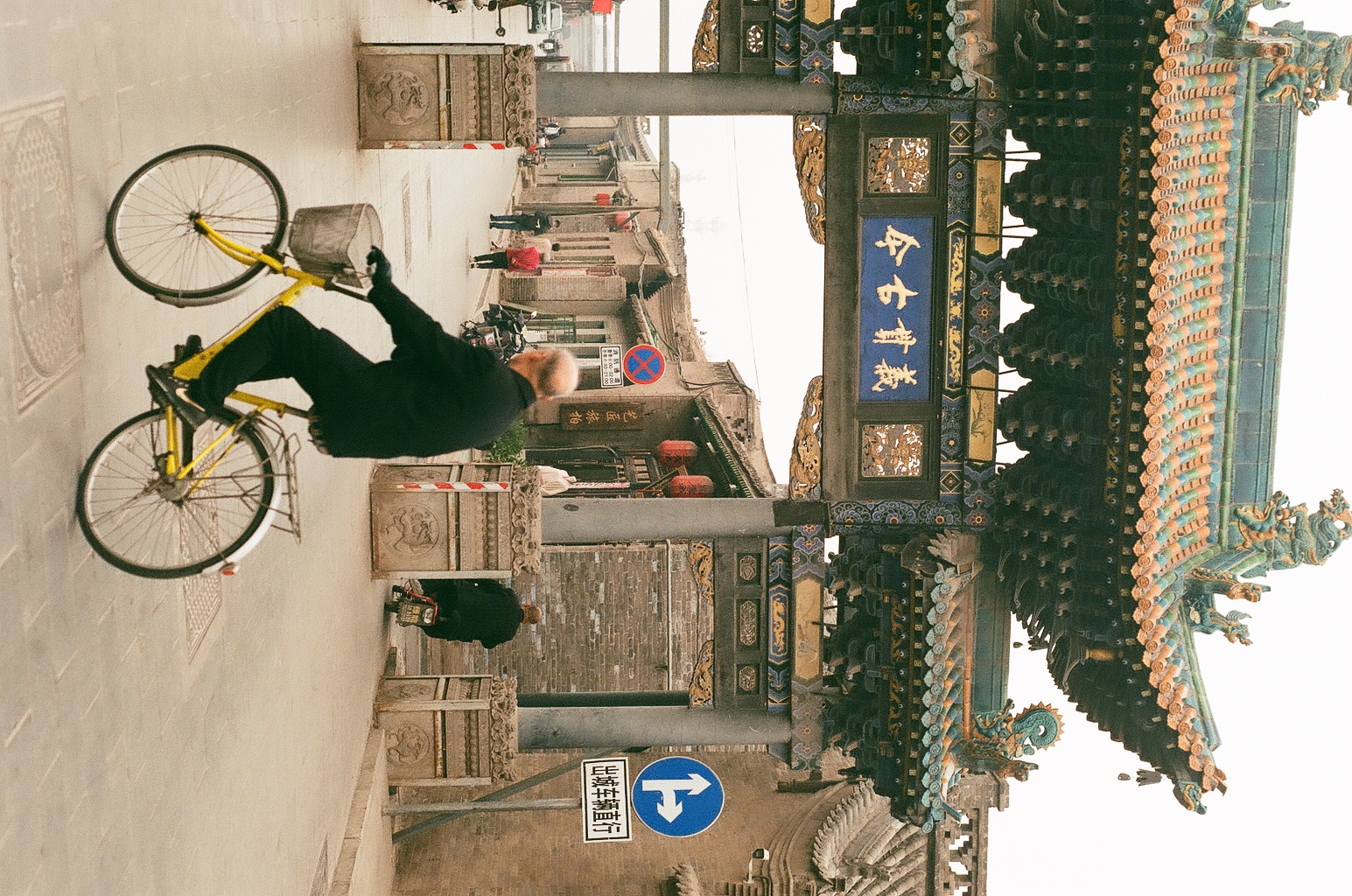

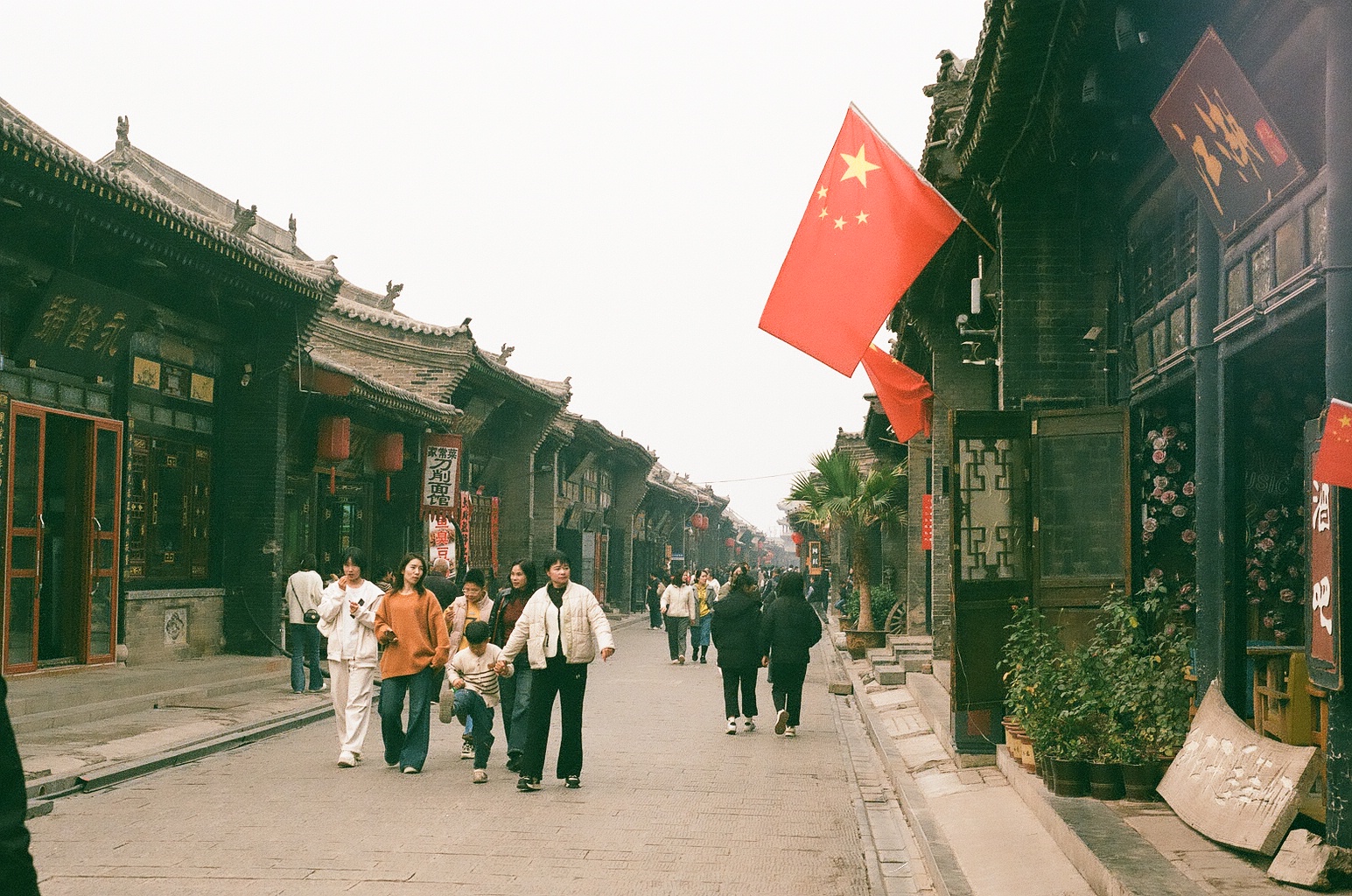
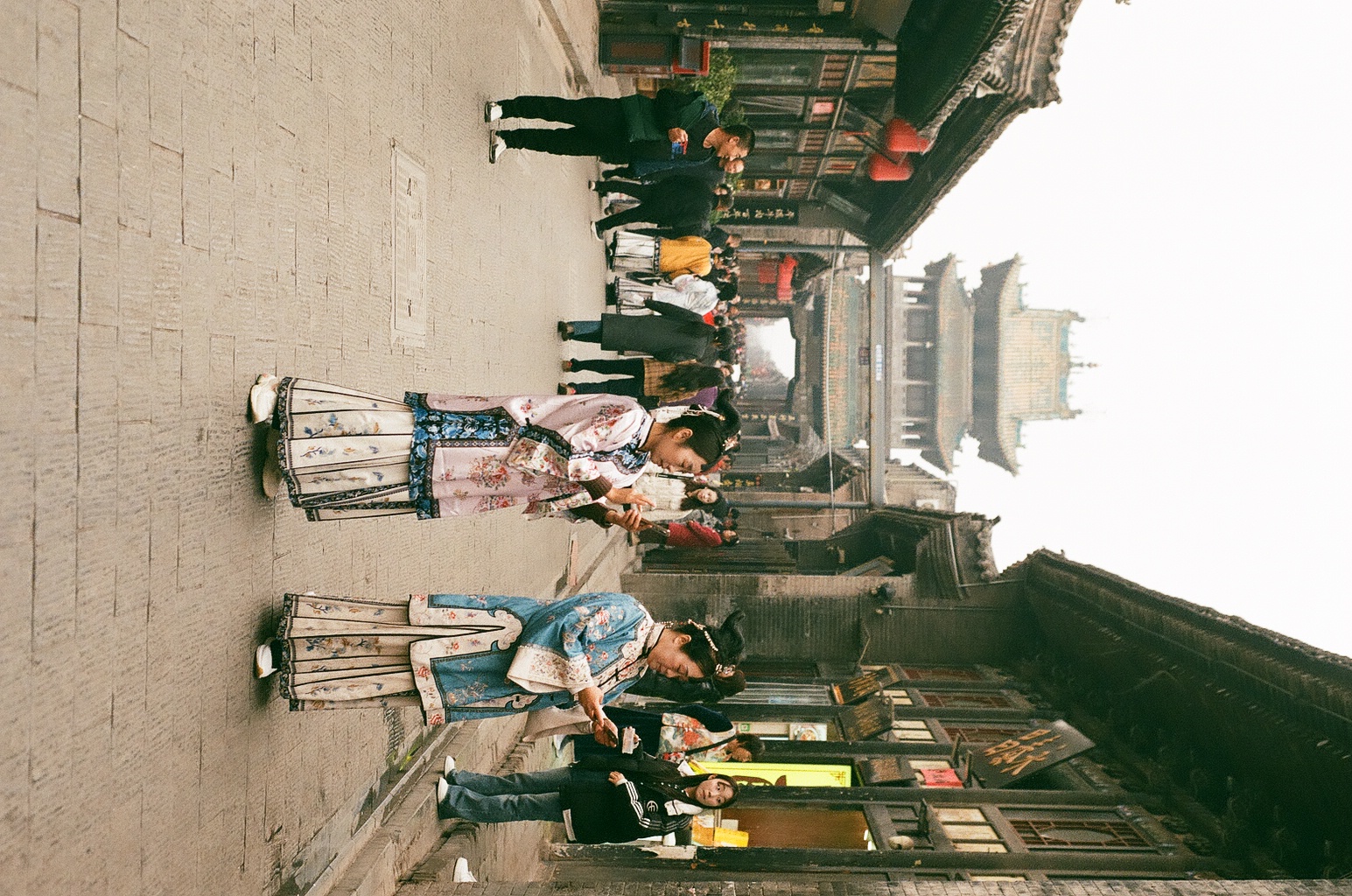
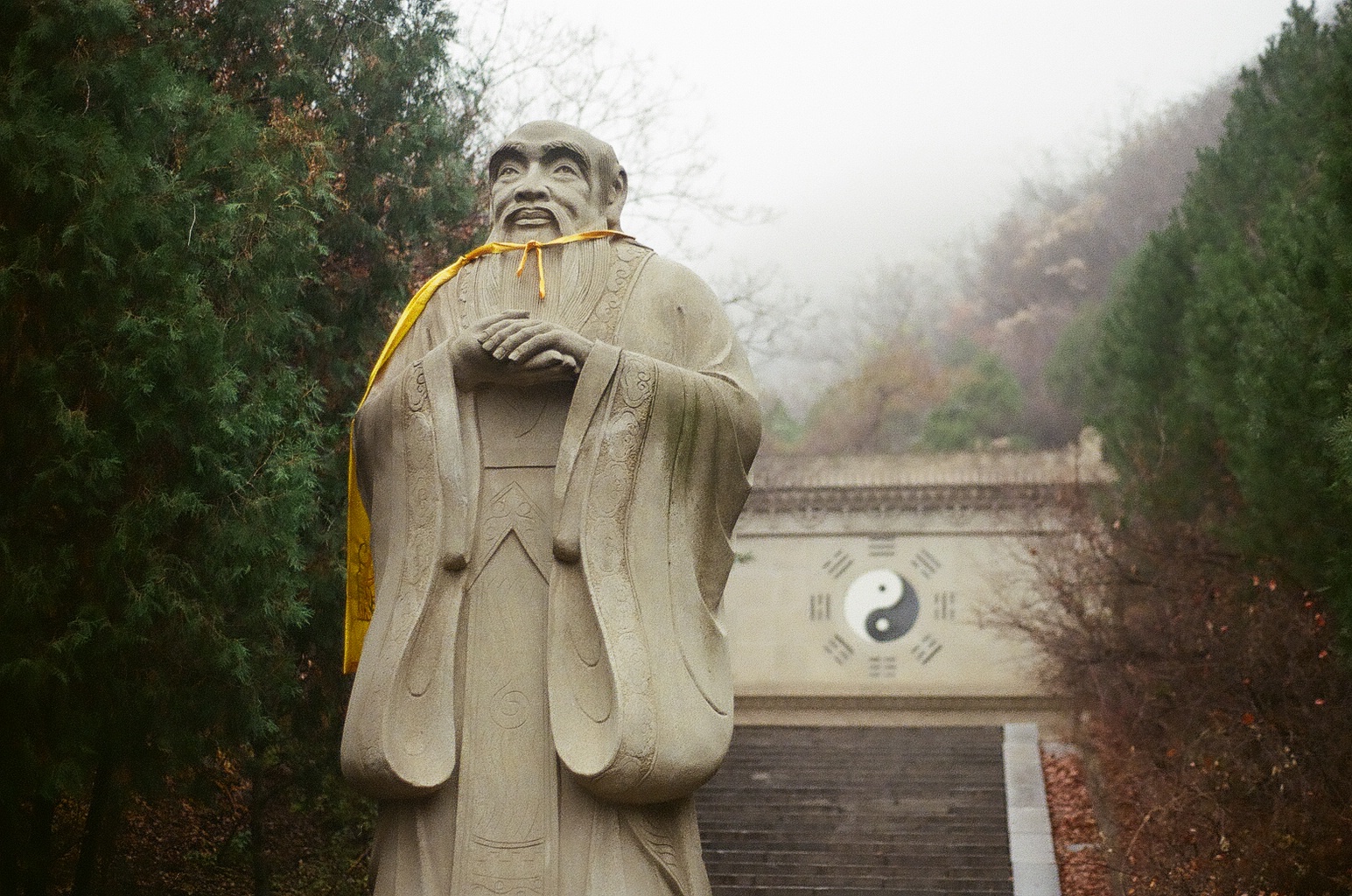

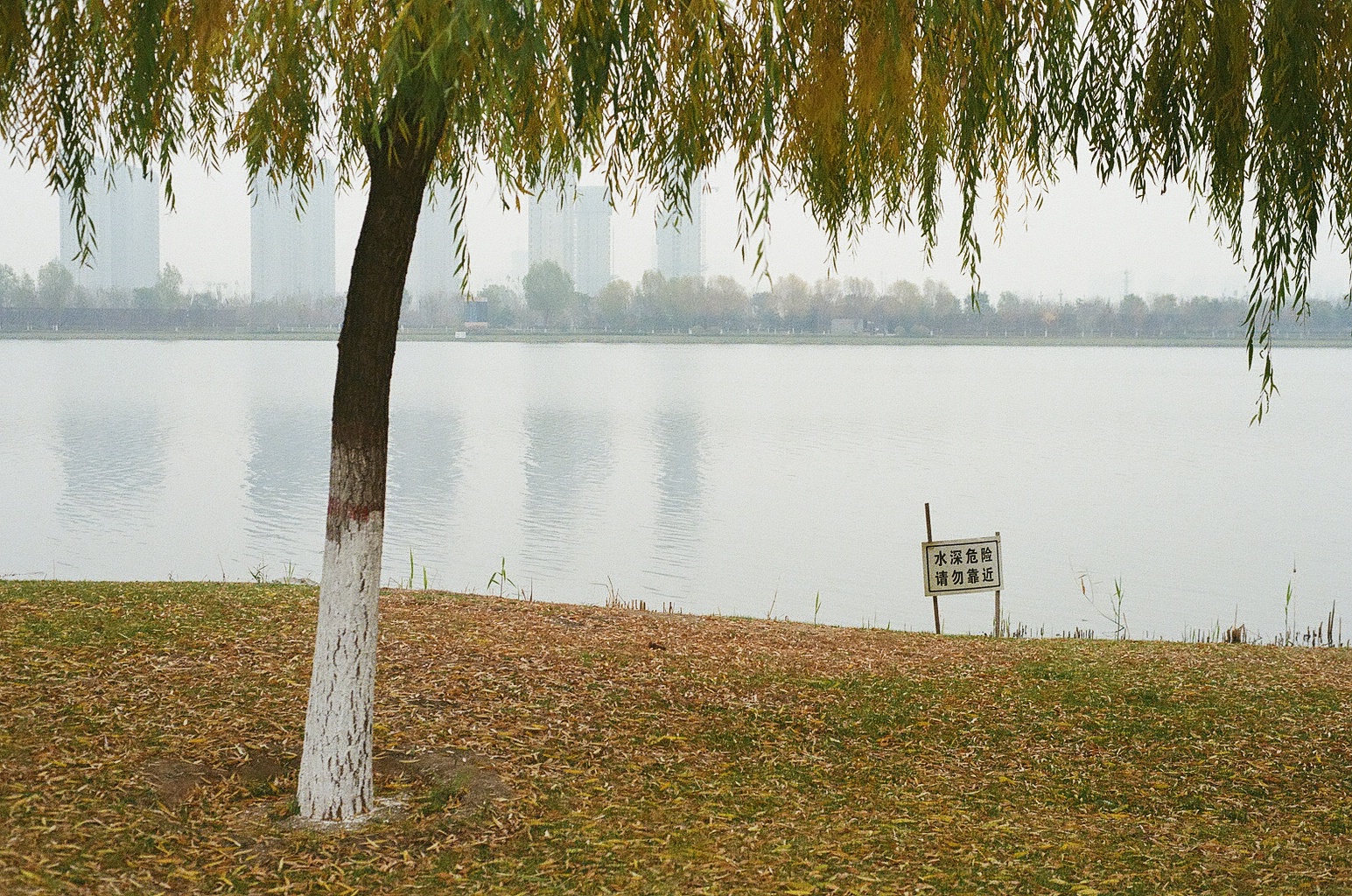
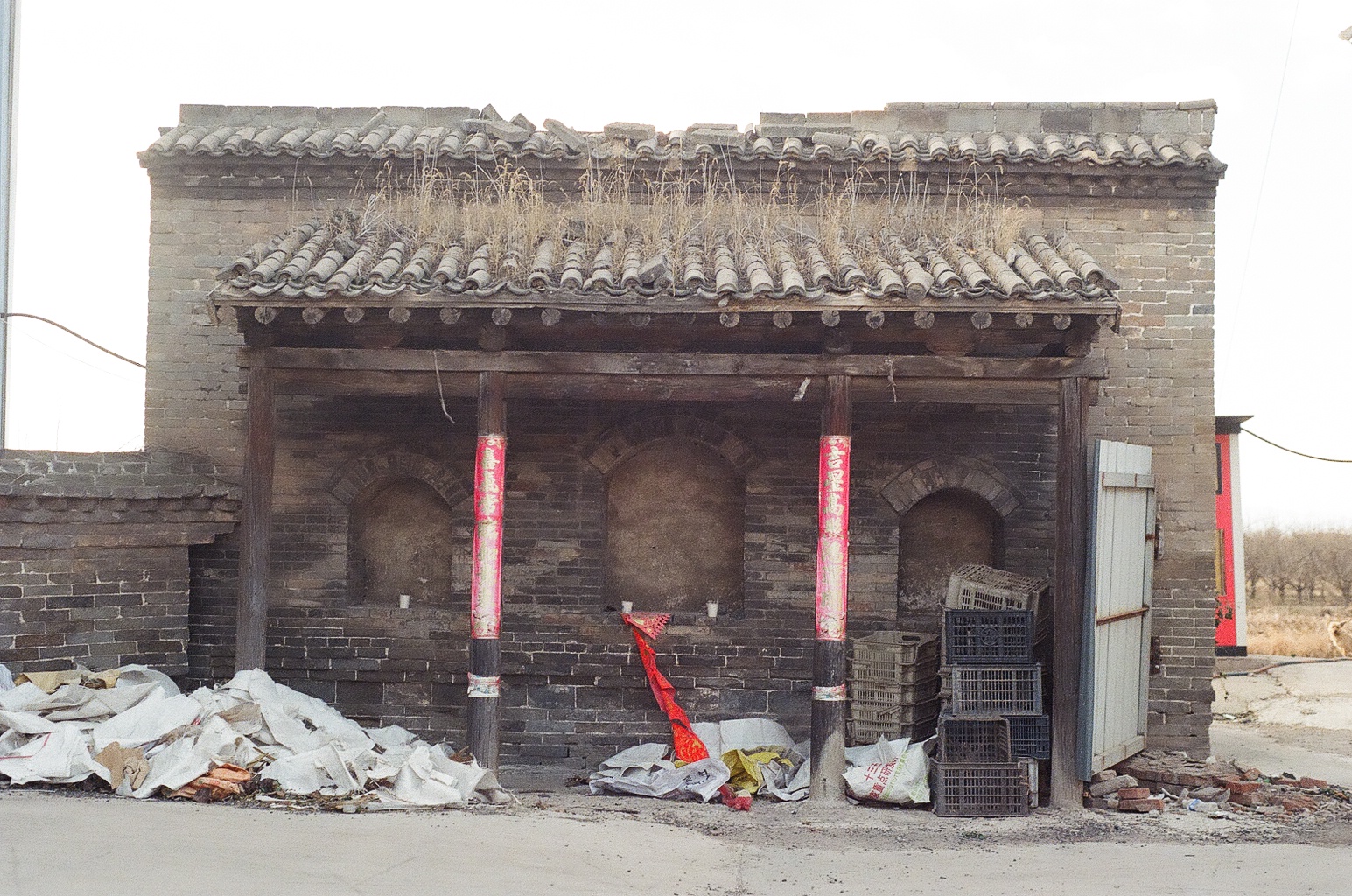


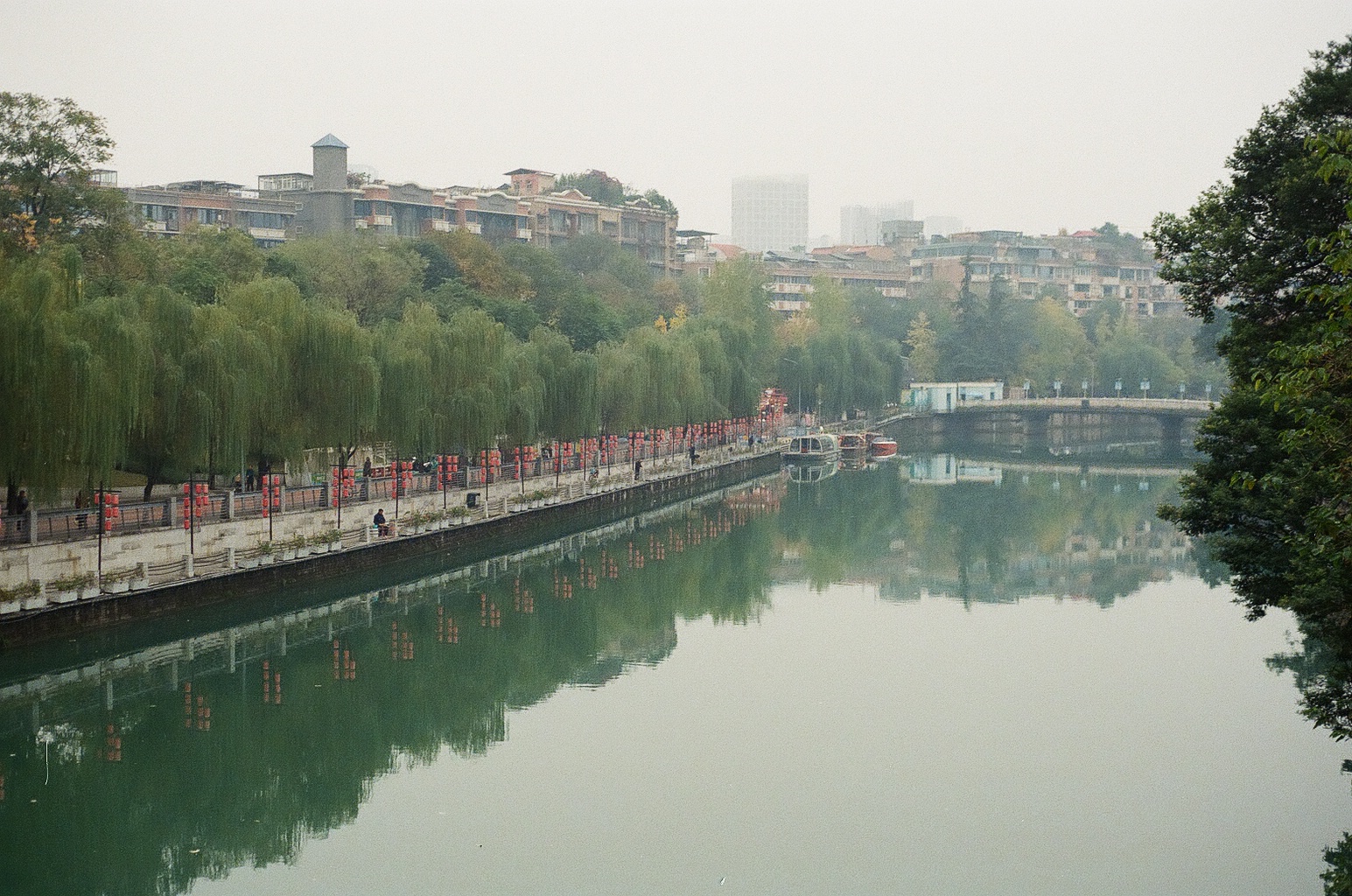

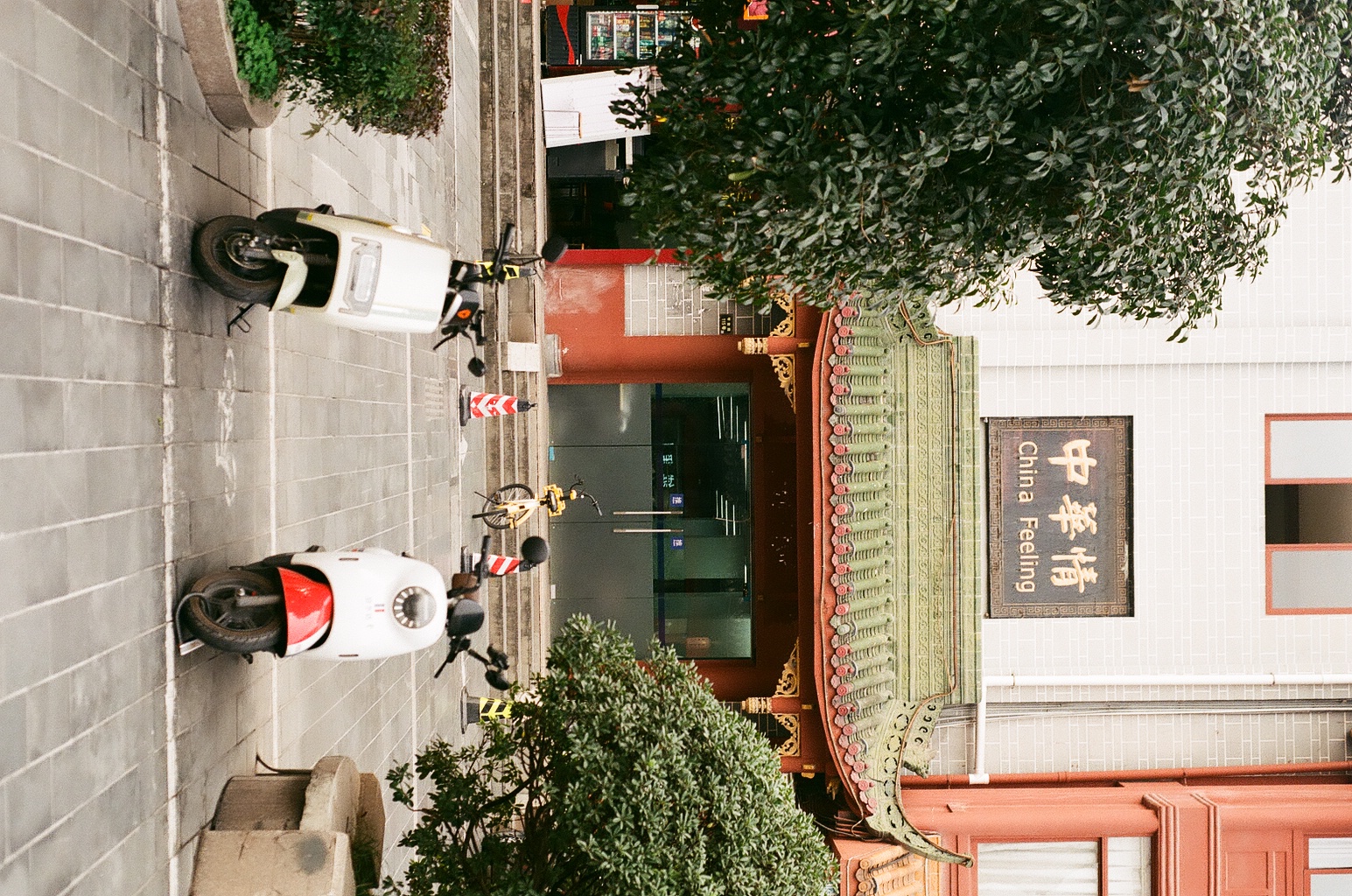
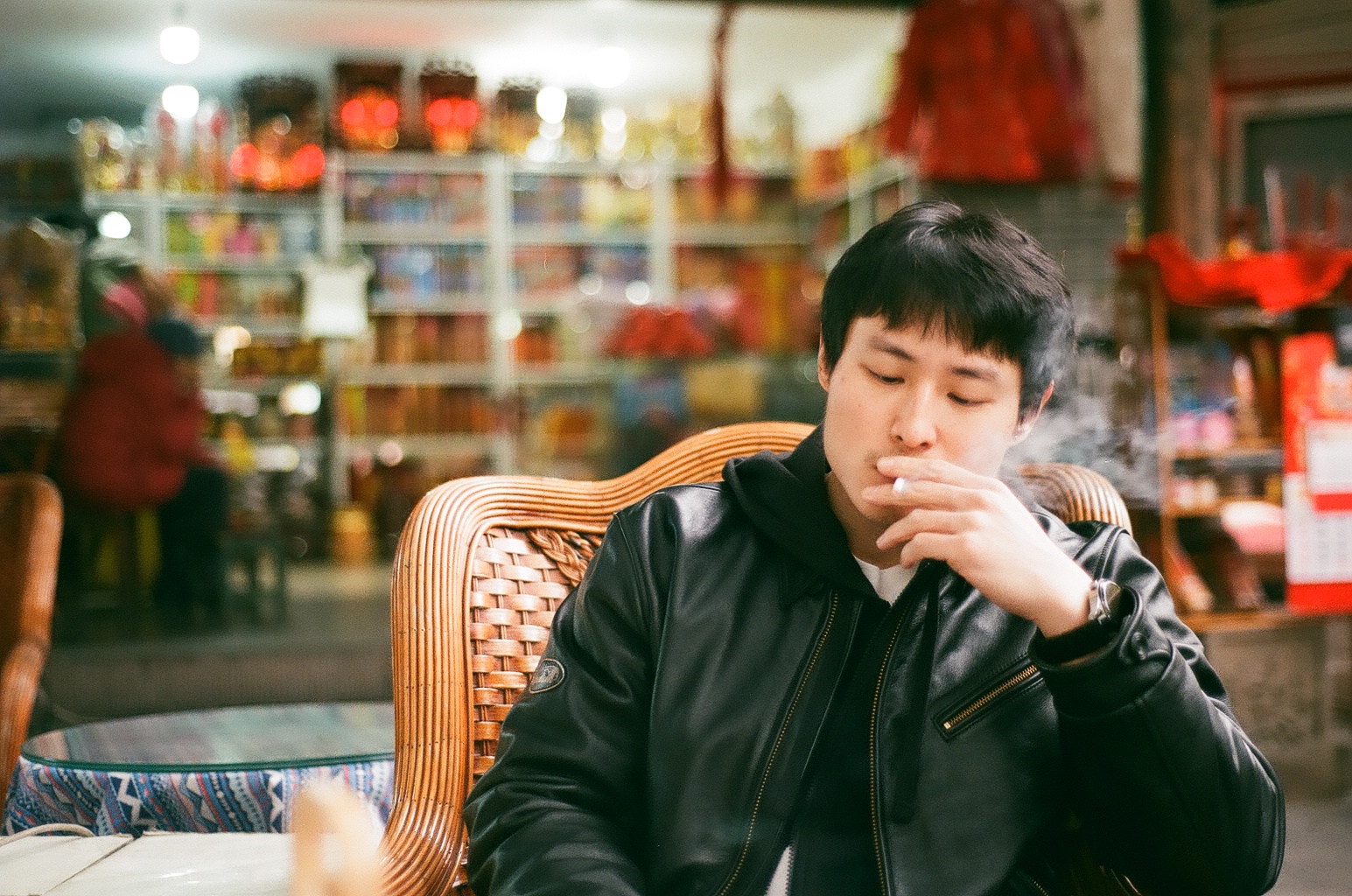


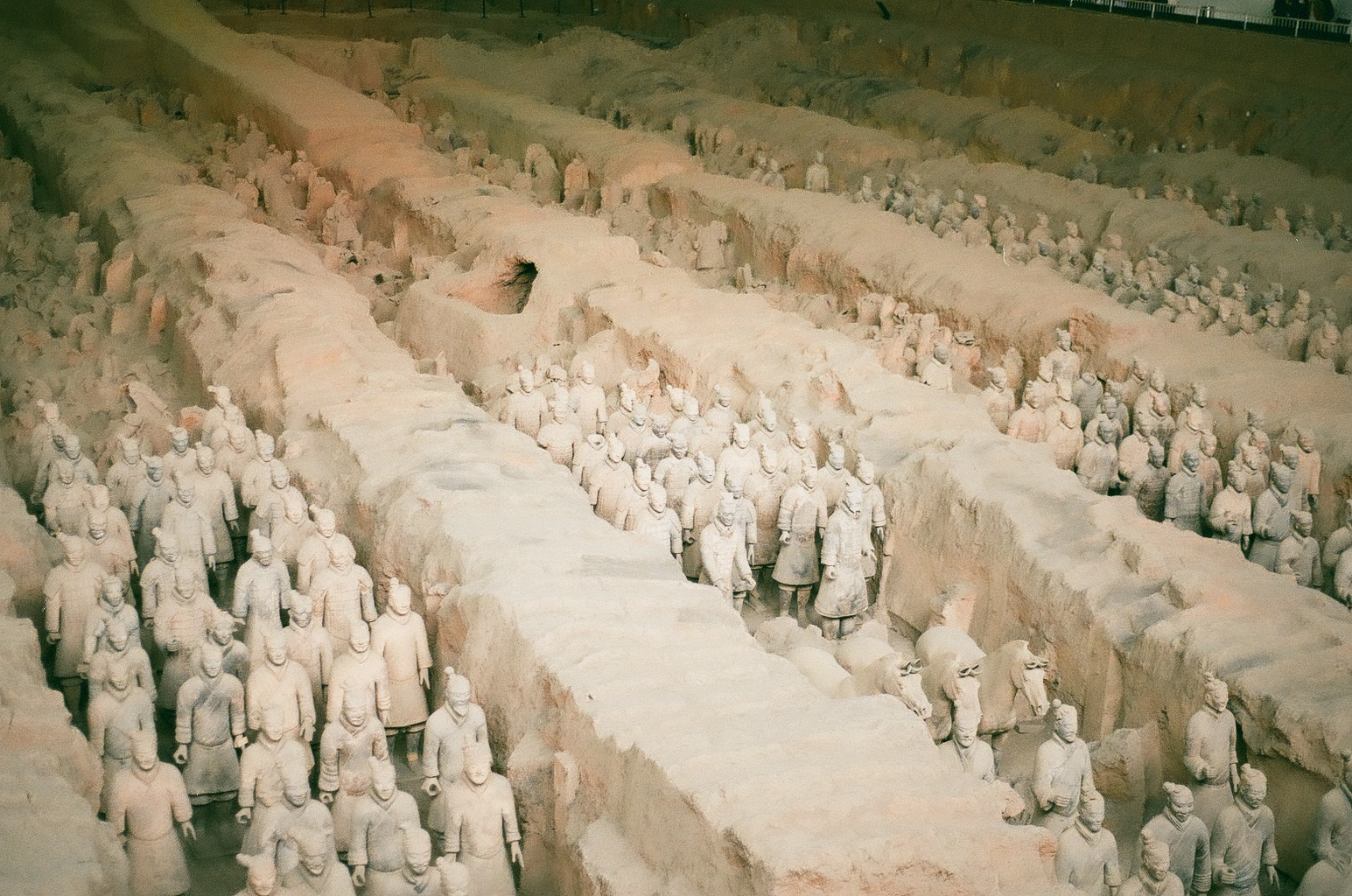
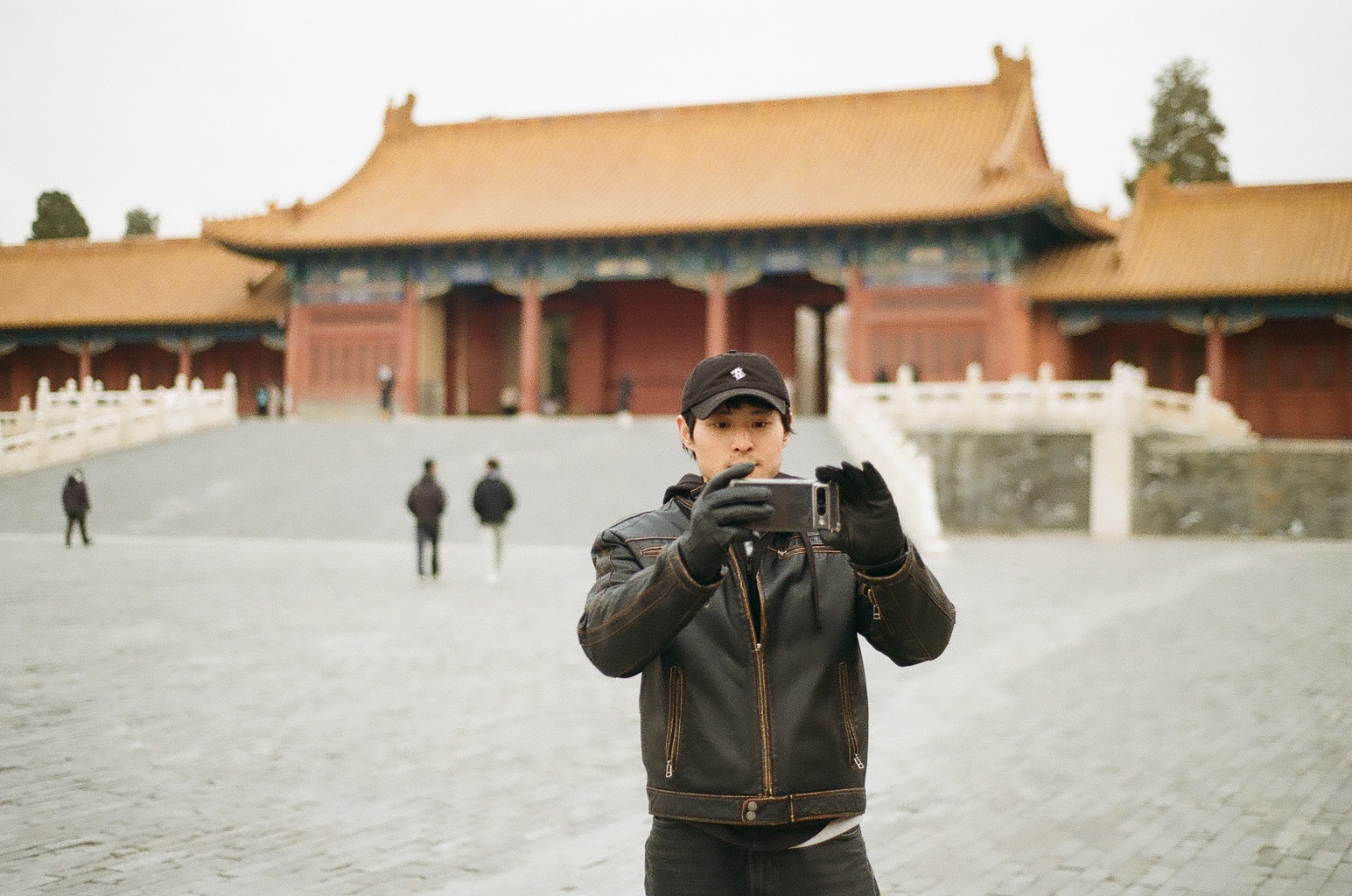


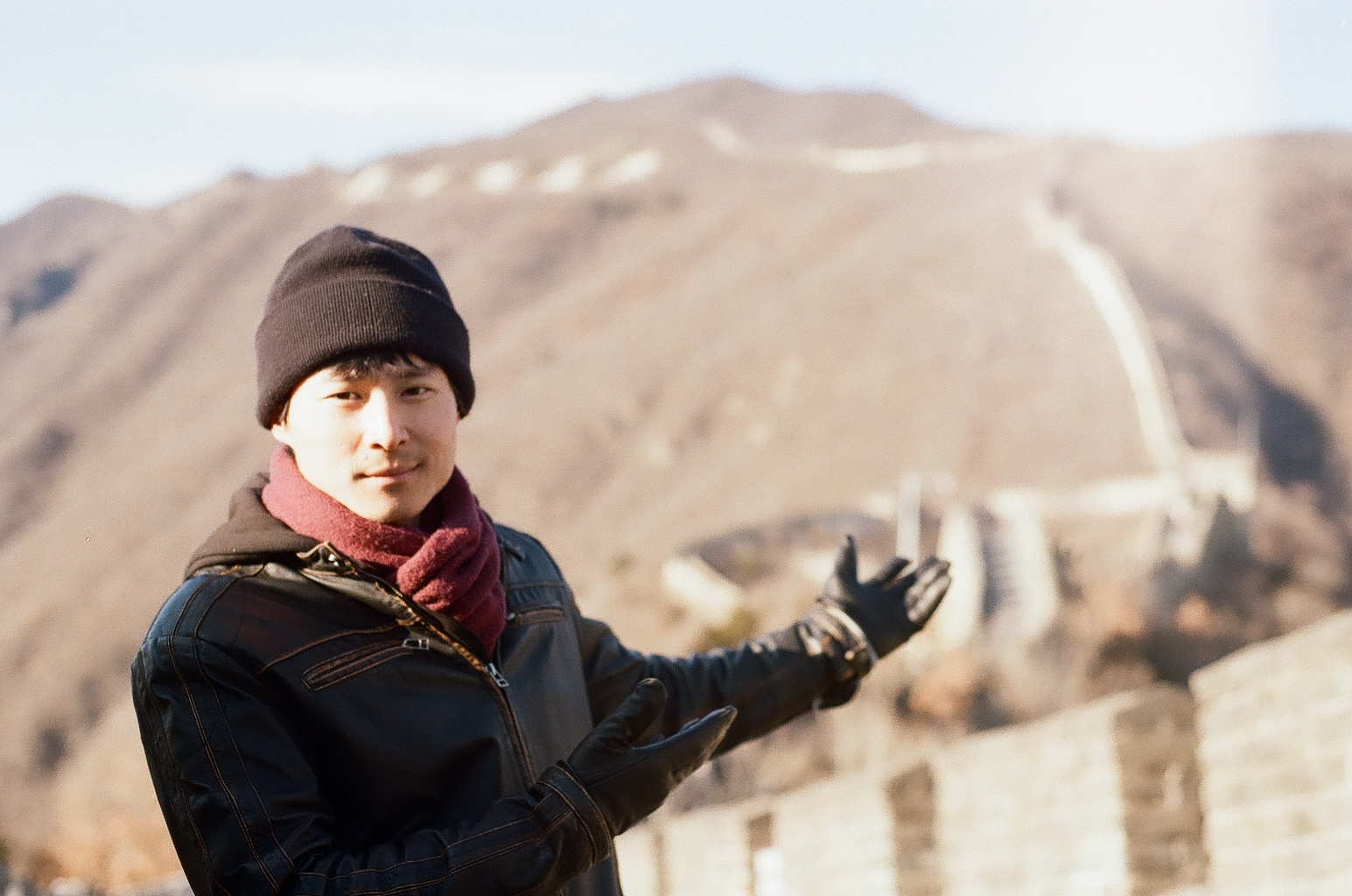
Previous posts:
December 17th
We have less than a week left in China and it feels both like time has flown by and like I've been here for months. While we're excited to see Shanghai and Beijing, it also means we only have a few days left in Taiyuan with Chen's amazing family. I'm frantically trying to figure out how we'll fit in final visits with everyone.
The past couple of weeks have been incredible. We flew into Chengdu on the night of November 30th and it quickly became one of my favourite cities. We walked over 20,000 steps each day, giving us a real feel for the city. On our first day, we grabbed a lunch of noodle soup, sweet rice cakes, and chicken heart skewers. The soup featured the signature numbing spice of Sichuan peppercorns, a taste I grew to love over the next week.
That afternoon, we walked to Tianfu Square and People's Park. Since it was a Sunday, the park was buzzing with activity: elders dancing in a square, families rowing boats on the pond, and hundreds of people relaxing in the sprawling tea houses at the park’s centre. That evening we headed to Kuanzhai alley, which dates back to the Qing Dynasty (1644-1911) and is now packed with souvenir shops and street food. Later, we walked to Chunxi Pedestrian Road, a modern shopping centre filled with luxury brands and Christmas decorations—a striking contrast to the ancient Kuanzhai alley.
![PORK BAO [2/8]](https://freight.cargo.site/t/original/i/c66b5d823c5a8290a51857238d560bc319d97f6d8ff133640197a63c5990c72d/5a9ed0bcbd34ae193aad2df24f14999e.jpg)
![ROWBOATS IN PEOPLE'S PARK [6/8]](https://freight.cargo.site/t/original/i/ec12b278f42a4860b282e0ba8d72dcef9131e33bb69bf05181e2232c5b48a513/IMG_3373_Original.jpg)
The next morning we explored Wenshu Yuan Monastery and the surrounding area across from our hotel. For lunch we enjoyed more noodles, dumpling soup, and duck before walking an hour and a half east to Dongjiao Jiyi, an industrial suburb transformed into a trendy art and shopping district. The area was filled with young people breakdancing, posing for photoshoots, and shopping in the local clothing and art shops. After wandering around and getting some hot tea, we had dinner at a hotpot restaurant nearby. Sichuan is famous for its hotpot, which is spicier and more numbing than elsewhere in China. Chen ordered us duck blood, a hotpot specialty, which I liked much more than expected. After dinner we walked to Anshun bridge before heading back to our hotel to rest for our adventure at the Panda Base.
Chengdu is famous for its Panda Research Base and much of the city is panda themed. From souvenir shops to advertisements and street signs, pandas are everywhere, which made me especially excited to visit the Panda Base on our last day. We got up early to head there knowing the pandas are most active in the morning during feeding time. We also wanted to see Hua Hua the famous panda who has gone viral on social media over the past few years, both in China and North America. Hua Hua has a developmental condition that stunted her growth, making her look particularly round (and extra cute). We knew there would be a crowd to see her, but we did not anticipate the two hour wait for a three minute viewing. In our rush we mistook Hua Hua’s twin brother for her and filmed him for a good two and half minutes. Unfortunately this meant we only got about 30 seconds to view Hua Hua, but I personally think she was worth the wait. The rest of the visit at the Panda Base was much more relaxed as we wandered around the giant facility and saw over a dozen pandas eating, climbing about, and lounging.
Arguably the best part of Chengdu is how laid-back and friendly it is. Everywhere you go, people are drinking tea, playing mahjong, or sitting in randomly placed chairs on the side of the road. The city is considered the happiest in China and I could see why. Chen and I both agreed we could live there—the weather is mild, life is slow, and the food is extraordinary. After our morning at the Panda Research Base we headed back to People’s Park to enjoy some tea without the overwhelming weekend chaos. That evening we walked to Jinli, another ancient pedestrian street where we enjoyed a traditional Sichuan dinner of kung pao chicken, mapo tofu, and stir-fried pork kidney.
![HUA HUA [2/10]](https://freight.cargo.site/t/original/i/cde251a52375847f13f920a80a83e025b19ce0f20097015a5ca33cfa37de2584/Screenshot-2024-12-10-at-9.06.21PM.png)
![RED PANDA [4/10]](https://freight.cargo.site/t/original/i/88a82181a4b9b62a74d1951f1b5059a2d2d041857f38c7521baf1f8b80e610a6/Screenshot-2024-12-17-at-4.42.37PM.png)
The next day we took a train to Chongqing, the largest city proper in the world. Recently Chongqing has become quite famous online for its “cyberpunk” aesthetic, a futuristic genre of science fiction where technology has taken over, but what I find even more fascinating is the terrain on which the city is built. By night the city feels like a video game, with lit-up skyscrapers towering over the streets, so bright that it could almost be daytime. But by day, you really get a feel for the mountainous terrain and extremely complicated urban planning.
Chongqing isn’t just hilly like San Francisco, the city is literally built into cliffsides, and since it’s filled with skyscrapers, all at different levels, it feels very disorienting and hard to navigate. In our DiDi ride from the train station, we went through so many tunnels and did so many loops around hills and buildings that I had no sense of direction. Most locals get around the city on foot or by subway since driving is complicated and cycling is next to impossible.
We arrived at our hotel that evening to a light rain (which added to the cyberpunk feel) and the craziest view. We headed straight for Chongqing hotpot which is even more numbing than Chengdu’s, and it was easily the best I’ve had. After dinner we walked to Hongya Cave, an ancient military fortress turned 11-storey night market with gift shops, street food, and hundreds of tourists admiring the brightly lit building from the street below.
![OUR HOTEL ROOM IN CHONGQING [1/7]](https://freight.cargo.site/t/original/i/ad8dff5bc67f9167e13d4eb7a30cf6d7a6d7ec1c4fc7c4eec5cd17f799820353/8045cad7a7fb9e5065ca5b39f65ee7ce.jpg)
![STREETS OF CHONGQING [6/7]](https://freight.cargo.site/t/original/i/fb34be75d06f1c6b6e31bcc4ececb0fa9039c2e00b8816a23a44170b545048c9/d18808c15be3c3e1b65cf0ad25cf00c6.jpg)
![DONGSHUIMEN BRIDGE [7/7]](https://freight.cargo.site/t/original/i/fd240fb7cf6d15c323a18bd485905a21843c1e41db6b27a84d2ac08e79133729/IMG_3796-copy.jpg)
The next morning I dragged Chen to a capybara cafe I’d seen online where I got to pet the animals while drinking tea and eating cheesecake. Then we headed to another one of the most popular attractions in the city, Liziba Station. This metro station runs directly through a building, attesting to the city’s unique architecture, and attracts large crowds. We hopped on the train at Liziba Station, which was much less busy inside than outside, and headed towards Shibati (18 Steps), one of Chongqing’s oldest residential neighbourhoods. At the nearby Shancheng Alley we climbed hundreds of stairs between old apartment buildings, stopping at the occasional souvenir shop and food stall. We finished the day with a gondola ride across the Yangtze River and another hotpot dinner. Afterward, we viewed Chongqing Raffles City from across the water—an eight-building structure connected by a skybridge that puts on an incredible light show at night.
For lunch the next day we had the most delicious Chongqing xiao mian (spicy noodle soup) and headed around the corner to Luohan Temple. Our last stop in Chongqing was Kuixinglou Square in the middle of the city. On one side the square is street-level, but when you walk across to the other side there are two small bridges connecting to a building. The bridges are actually 22 storeys above the street below which was completely mind-boggling.
![PETTING CAPYBARAS [1/15]](https://freight.cargo.site/t/original/i/9acd172b56a97c09d3b7e022da96b59c3375b87dfc67a2118a69b75b361bdcdb/Screenshot-2024-12-10-at-9.30.42PM.png)
![LUOHAN TEMPLE [12/15]](https://freight.cargo.site/t/original/i/5086fa27daa424b381a8ab55e086198cc8fa556362305a6d61f341f1cdeebf7e/IMG_4223_Original.jpg)
We then took a train to Xi’an for a two-night stop to see the Terracotta Army. The army was sculpted over 2200 years ago, by a team of over 700,000 people, to protect Emperor Qin Shi Huang in the afterlife. Each soldier has a completely unique face and, depending on their military rank, a different hairstyle. They also each have a name inscribed on their foot, possibly representing Qin’s real army. When the soldiers were first dug up (and as they continue to be excavated) they were colourfully painted, but the paint faded very fast and they are now a dusty sand colour. That evening, we explored downtown Xi’an, had a giant pork leg for dinner, and visited the busy Bell Tower. Before catching the train back to Taiyuan the next afternoon we checked out the Giant Wild Goose Pagoda, a stone pagoda built in 652 during the Tang dynasty.
![XI'AN BELL TOWER [6/8]](https://freight.cargo.site/t/original/i/5f29f0e43a87d57361ceca58d24756b805e4c7b6e8082e8cd617fa1207044cd4/312037083b3cb53c8efa69010431ce4e.jpg)
The next few days back in Taiyuan we visited Jinci Temple, went back to the village to film more with Chen’s grandmother, shared some delicious meals, and even learned some martial arts moves from Chen’s dad. On the 12th Chen and I drove to Shuanglin Temple near Pingyao to see a beautiful array of Buddhist sculptures. It was snowing and freezing cold but we had our Chinese military jackets to keep us warm. That day we also went to the Qiao Family Compound, the large complex of an affluent family during the Qing dynasty. The labyrinthine compound was very interesting to see after hearing Chen’s grandma’s story—where she grew was a similar size and style, an unbelievable contrast to her life in the village.
The next morning we drove north to Datong to see two more big Shanxi attractions: the Pagoda of Fogong Temple and the Hanging temple. Chen’s family friend who is from the area and works for the government arranged for us to get a free tour of the pagoda. It was built in 1056 during the Liao Dynasty and is one of the oldest and tallest fully wooden pagodas in the world. Inside the first floor sits a giant wooden Buddha with an intricate wooden pattern ceiling above his head. In the afternoon we headed to the Hanging Temple, one of the most impressive sites I’ve seen on the trip. We arrived at a massive canyon in the mountains which itself was a worthwhile sight, even in the icy weather, but as soon as the temple came into sight I was blown away. It is over 1500 years old and clings precariously to the cliffside, supported only by some thin wooden pillars. Visitors are actually allowed to go inside and walk along the ancient wooden planks which felt remarkably stable given the age and location of the temple.
![LUCKY DRAGON AT JINCI [2/10]](https://freight.cargo.site/t/original/i/7fd8b6e4121fddd0289b67077c67ca2c411f8d3dd446151f8b6261937405389a/47102661aec8a7645585bb87438f8b5b.jpg)
![CHINESE SQUAT [4/10]](https://freight.cargo.site/t/original/i/2bbf8c2788476ee917d7759032ad2f276c146b5166b56b78d8a6b07164dce764/0e4eff72ec1d18ff9ba4343cf3dc4a93.jpg)
We’ve just returned from a two-night trip to Shanghai, which I’ll share in my final blog post next week along with Beijing.
Thank you for reading and see you soon back in Canada!
November 30th
It’s been over two weeks since my last blog post, and even though things have been quiet, I have quite a bit to share. I was exhausted after our fast-paced trip to Shandong, so we decided to take it easy when we returned to Taiyuan. Unfortunately, after our week of rest, I caught a bad cold, and Chen caught it a couple of days later. Our quiet week turned into two very slow-paced weeks, but we're both feeling much better and ready for our next adventure—Sichuan.
Chen and I arrived in Jinan, Shandong, on the 14th after a foggy road trip through the mountains of Shanxi and Hebei. Most of the highways I’ve been on in China are surprisingly quiet, and on our way to Shandong, we were often one of just a few cars, though we did pass many large trucks. Every couple of hours, we stopped for a break at rest stations to stretch, get snacks, use the (very dirty) bathrooms, and refill our travel mugs with hot water. We drove through dozens of long tunnels, the longest being 18 km, and some sections of the highway were so foggy you could barely see ahead of the car, and the way Chinese cars and trucks drive, this felt a little sketchy.
Despite the long, somewhat treacherous drive, we arrived in Jinan that evening and I immediately loved the city’s lively atmosphere. Shandong is China’s second-most populous province (I just learned this after a quick Google search), and I could definitely sense the difference from Shanxi. The traffic was the heaviest I'd seen in China so far, with cars and bikes weaving through each other in what Chen and I call “organized chaos.” It looks like an accident could happen at any moment, but somehow everyone dodges each other just in time.
Our hotel was close to Daming Lake, a popular tourist spot and park. After checking in, we took a DiDi (Chinese Uber equivalent) to the lake for a nice walk. China really comes to life at night, with nearly every building lighting up. Restaurants and shops have some of the brightest signs I've seen, making the city feel like one giant Times Square. The most popular attraction at Daming Lake is Chaoran Tower, which, once lit up, becomes the backdrop for tourists' TikTok videos and photoshoots.
From Daming Lake, we walked to a “fine dining” Pizza Hut. Chen had been talking about Chinese Pizza Huts since we arrived, so I had to experience it myself. The meal wasn’t anything special, but the menu was unbelievable, with cheese-stuffed crusts, Beef Wellington, and a new deep-fried frog pizza (not available when we went). I wouldn’t exactly call it fine dining, although the price was—it was probably the most expensive meal we've had in China—but it’s a real sit-down restaurant, unlike the Pizza Hut I’m used to. We ordered a shrimp and crab pizza with cheese-stuffed crust, soup, and mushroom crostini.
![FOGGY TUNNEL [2/11]](https://freight.cargo.site/t/original/i/fd0f44537270b9e178d0fb1c32e6f1a1f29dee68187ddebe0e6fd63f65ccb2c0/Screenshot-2024-11-23-at-4.04.13PM.png)
![STREETS OF JINAN [7/11]](https://freight.cargo.site/t/original/i/26f565f0c950c755184b68dc74dbc876b08ef277b131c6ce8761a7926ef47b36/IMG_2884_Original.jpg)
The next day, after a terrible sleep in our sweltering hotel room (the AC was off for the winter), we headed to Weifang to meet Chen’s parents' friends, who were going to tour us around the volcano and winery. First, they treated us to a delicious Shandong lunch. They called us before we arrived to ask what kind of food I liked to eat and I said I liked chicken. We arrived to a beautiful meal with a whole chicken sitting on the table, head, feet and all.
After lunch, we visited an inactive volcano surrounded by a range of volcanoes. The unique volcanic soil is rich in minerals and sapphires. The government plans to buy the land to preserve it as a national park, however the locals are against the idea since mining the sapphires is a crucial source of income for many of them. We then visited the winery where Chen’s parents source their wine. It sits next to the beautiful Gaoya Reservoir, and even though it was the off-season, I could imagine how nice it would be in summer. Before heading back to our now even hotter hotel room, Chen’s family friends took us to the sapphire centre of Weifang where jewelers sell the gemstones from the volcanic rock.
The next morning we hiked up Qianfoshan, or Thousand Buddha Mountain, a large park in Jinan. The grueling climb up thousands of steep steps took us past dozens of small temples, each honoring a different Buddhist god. At the summit, we had an amazing view of the city. On our way down, we spotted the Maitreya statue through the trees, a 30-meter golden Buddha statue that sits on the mountain side, overlooking Jinan.
That afternoon, we drove back to Taiyuan on the same long road, this time without the fog. I was exhausted from the trip, and once it got dark, I got to experience the overwhelming lights on a Chinese highway. Along with plenty of flashing lights to keep drivers awake, every few kilometers there are cameras with bright flashes that use facial recognition to ensure drivers follow the traffic laws. If you're speeding or not wearing a seatbelt, you'll receive a text with a photo of yourself as a warning. Chen’s cousin showed me a picture of their uncle driving without a seatbelt. Terrifying, but effective.
![WAKING UP IN OUR 28 DEGREE HOTEL ROOM [1/17]](https://freight.cargo.site/t/original/i/a28de197eab8c1ab75c26b1603be63c7b8e5e0028ceb7014d5d6888caa43ff99/b8c30de83ee7b4c77a4af3f5bf4afdf0_Original.jpg)
![CHANGLE VOLCANO [4/17]](https://freight.cargo.site/t/original/i/f5e010f8d2456dea40930f872a43e9e52e8499a32e4757af0c9e21808a5cf0df/8242b46c095c56859d7784479d0a6818.jpg)
![ARRIVING AT THE WINERY [7/17]](https://freight.cargo.site/t/original/i/f4f3d3d54b4efd96d5a14c80db511f72bea131de58ad4b503b3cc43ae96ca2b6/IMG_2748_Original.jpg)
![FILM PHOTOS [9/17]](https://freight.cargo.site/t/original/i/8b419a76fcb589d2a36edba4cf2ccbaf64f8d64fca63fd5161cb36808c3630bd/9a2bf1df1c6d4986527c0863a8cd507e.jpg)
![SO MANY STAIRS [14/17]](https://freight.cargo.site/t/original/i/cbc157669ef1d92414b60bd3a3b9b3835a6cf18747798978417114298fd199f4/dd515409756e89d3893f39bdff218931.jpg)
The next day back in Taiyuan, we were invited to lunch with more family friends. We met them at their electric bike shop where they refurbish electric bikes, scooters, and utility tricycles. They let us test drive a couple of the vehicles including a tricycle which we immediately wished we had in Canada, but unfortunately they aren’t permitted on Canadian roads. After riding around the neighbourhood and being posted on Chinese TikTok, the family friends brought us to one of the most interesting restaurants I've ever been to. We pulled up to a house with a big yard and a row of five Mongolian tents. On one side of the yard was a coop with chickens, ducks, and goats, and on the other was a huge pile of rice drying in the driveway. The meal was a delicious Shanxi hotpot which is served in a special copper pot. Unlike hotpot from other regions, the ingredients in Shanxi hotpot are already cooked and broth is poured over them to keep them cooking without burning. Hot coals are placed on the inside of the pot under a large opening in the middle which acts like a chimney. The whole meal was amazing, including the goat blood and pork cheeks… though I preferred the noodles and pork belly.
In the following days, we mostly relaxed, ate noodles, visited a park along the Fen River, and went to Chen’s family friend’s son’s high school where Chen taught a class about art history and storytelling and shared our experience filming Aisha’s Story in Jordan. The students were really engaged, and they were also excited to see a foreigner in their class, giving me a big round of applause when I showed up. After the talk, they asked me about my time in China and whether I know their favourite Canadian basketball player and of course the rapper Drake. One student even sang a Drake verse to me in front of the class only for me to reveal that I am in fact a Kendrick Lamar fan when he asked if I knew about the feud. I also met the students and posed for photos with them—it felt like being a celebrity with five phones documenting.
It was really interesting to spend some time in a Chinese high school, especially after hearing about how intense it is from Chen’s family friend’s son. High school students go to school from 6:30am to 9:30pm five days a week, with multiple hours of homework each night. They then go to school for a half day each Sunday for review and tests. This made Canadian high school seem like a breeze—I got exhausted just hearing about their schedule and I was surprised to see how awake and engaged they were despite everything.
Unfortunately, a couple of days later, I woke up with a sore throat, likely from a cold going around the school, but I still felt fine otherwise. Chen’s uncle treated us to a big meal where vegetables, noodles, and meat are boiled in broth in a large pot in the middle of the table and balls of cornbread are stuck to the inside of the pot to cook. The next day, we hiked with Chen’s parents to the Mengshan Giant Buddha, built during the Northern Qi dynasty. The original head was missing when discovered and replaced in 2008. After fighting off the cold for a few days, it finally hit me hard, and I was stuck in bed for a couple of days. Once I recovered, Chen and I explored a nearby park, played pool, ate lots of dumplings, and hung out at the wine shop.
This past Thursday, once Chen and I were feeling much better, we headed back to his grandma's village to film interviews with her for one of Chen's PhD projects about internal migration history in China. I really wished I could understand the interview, but Chen briefed me on his grandma's fascinating life story. She was born into a wealthy family, but due to many factors including WWII, the Chinese civil war, the land reform movement, and the cultural revolution, her family was forced to give up their wealth and farmland. Although they had lost everything they still had their reputation as an affluent family and Chen's grandma was forced to marry into a poor family to change this reputation. She married Chen's grandfather and they had 6 children, Chen's mother being the eldest. Chen's grandmother took care of them, worked, and made them all their own clothes due to poverty. After the interview, Chen’s aunt made us a delicious hotpot lunch, which we shared with the family. We then walked to a small wall that Chen's grandfather built to protect the village from bad luck, and visited his grave near the village.
![MY NEW RIDE [1/8]](https://freight.cargo.site/t/original/i/3683529d747945d7ebd12f7c20e5104ba3a989723bae8082946134c4200f7e0a/IMG_3152.jpg)
![ONE OF THE STUDENTS [4/8]](https://freight.cargo.site/t/original/i/8b672b396dc368abb26e8f87efaf142c65c6040a15e416a1e6e46f1200525699/eca59e0a4b600e8f09ed05ff3062de6c.jpg)
![CHEN TEACHING STORYTELLING [5/8]](https://freight.cargo.site/t/original/i/f193aada50cc57fc59a36b23cc5b66f1059b7853ef608d3fd5926b8258db5540/f36a3b034ce3ea1bb2dcdd2ec57f6d6b.jpg)
![BEING SERENADED WITH DRAKE SONGS [6/8]](https://freight.cargo.site/t/original/i/b3f46019a97fe8b5453ef2a7573af2afe83be8f2ec17cfbc342694abcf9024a6/e8c936a5556760e8c7147a376e27841b.jpg)
![CELEBRITY ISAAC [7/8]](https://freight.cargo.site/t/original/i/9c6aafae6163c9224c35203360a541d5fe420f6e0148d5564cf067d8993b5302/67f2549d938f9f5ad782e3fd9f979c7b.jpg)
![NORTH AMERICAN POSES [8/8]](https://freight.cargo.site/t/original/i/900db1748c375a89646f18c1460a0752c46ca9af3a1b7b5dddc0be1fbf7a2c28/0c381359ce296fdf381d424c09102dae.jpg)
![TRYING CHICKEN FEET (NOT MY FAV) [5/16]](https://freight.cargo.site/t/original/i/4066fa68e8da1a708141ec6b73d8cda0771f1cee770e2484547f7109d7d41c41/acd495c7efe451f04c16732f264cb3fb.jpg)
![MENGSHAN GIANT BUDDHA [7/16]](https://freight.cargo.site/t/original/i/f6f544de1d7d31c555bb705dc8862960fa6a8e032043edb948f0c688a3d1f5c1/f7418fada820ac044ecdda2ce041f187.jpg)
![POOL PRO [9/16]](https://freight.cargo.site/t/original/i/8836a7f7672a8f5a7987bf408ffc7a64bd8f105a77f4541ccb389d91692b07bf/IMG_3286.jpg)
![BUNDLED UP FOR CHINESE WINTER [12/16]](https://freight.cargo.site/t/original/i/c7ed285d559cefa34dbce78d63ae18d4eb210720d2d339dd5c4499cc7cbacd8e/6fa2a5cc4c1a2debf2c5ad4230465e2f.jpg)
I’m finishing this blog post on our flight to Chengdu where we’ll stay for four nights before heading to Chongqing and Shanghai, depending on how we feel. After this 10-day trip, we’ll return to Taiyuan for a week, then head to Beijing to wrap up our China adventure.
Thank you for reading! I’ll update you all in around 10 days!
November 14th
My first ten days in China have been a fantastic introduction to the country. Thanks to Chen and his family, I have been fully immersed in Chinese culture—from daily family meals to visiting historical sites to being the only foreigner everywhere we go, I’m truly getting a feel for the country.
We arrived in Beijing on the morning of November 4th and immediately grabbed a big lunch at a mall (malls are very popular here and actually have great food) before heading for a much-needed Chinese massage after the long flight. Then we took a high-speed train to Taiyuan, Shanxi—Chen’s hometown—where his parents warmly welcomed us. They don’t speak any English but have been the most amazing and hospitable hosts. They quickly gave me the nickname 二豆 (èr dòu), meaning “Bean Number 2”—Chen’s nickname is Bean (dòu), so they affectionately call me their second son. Their home is a gorgeous three-story townhouse in a small community in the southern part of the city. There are tea rooms and sitting rooms on each floor as well as a bar on the top floor. In anticipation of our visit, Chen’s parents cleared the whole top floor for us, making it essentially our own apartment.
![OUR TOP FLOOR "APARTMENT" [5/8]](https://freight.cargo.site/t/original/i/02a7525776d80a0d5daa3f7681a58a1876f10c26dca5bd33e46169b0cab370e9/1484f4414ff8261ef891fc956dd87ff0.jpg)
Shanxi Province, in northern China, is known for its rich history, well-preserved historical sites, noodles, and vinegar, just to name a few. I’ve already been lucky enough to experience all of these, and Chen’s friends and family are constantly adding more amazing suggestions to our itinerary. Taiyuan is the capital of the province, and with a population of 5 million, it’s only considered a medium-sized city. Driving around, seeing cars parked in endless rows (sometimes even in the middle of the street), you can really feel just how large the country’s population is.
We’ve had a lot of fun exploring Taiyuan and its surroundings. We visited Chen’s maternal grandmother in a small village called Wenshui about 50 kilometers outside the city—a part of China few visitors get to experience. Chen’s mother and her siblings grew up in this village, and Chen spent a lot of his childhood here as well. Sometime in the next couple of weeks, we plan to stay with his grandmother in the village for a couple of nights. We’ve also visited Chen’s uncle’s sign factory, spent a lot of time at his parents’ wine shop (drinking both wine and plenty of tea), harvested cabbages from their plot on a community farm, visited the Taiyuan ancient city (太原古县城), and hiked to a Taoist temple in the hills.
![GANBEI! [2/18]](https://freight.cargo.site/t/original/i/df9fd1e785d2f5b384ac46aa47ad771158737a05bf776c212a4971876052176c/IMG_2701.jpg)
![FRIENDS AT THE WINE SHOP [6/18]](https://freight.cargo.site/t/original/i/3a6e591b9aac66188ecb3df7e1e3dab117af2840360c73e1ba1feb09be66d26b/0246990dc0520c13294d824644c81376.jpg)
One of the highlights for me was our trip to Pingyao, an ancient city south of Taiyuan that dates back over 2,800 years. During the Ming and Qing dynasties, it was a financial hub, with one main street even being known as “China’s Wall Street.” Walking through the city gate, you’re instantly transported to ancient China. Today, there are many tourist shops and restaurants, but the buildings and streets have been very well preserved, making it easy to imagine what the city was like hundreds of years ago. In Pingyao, we also watched a Chinese opera about a family living there during the Qing dynasty (1644-1911). It was an immersive show, where the audience was led through different rooms, each depicting a different part of the story. Although it was in Mandarin and I was a bit lost, Chen translated the general storyline. The production ended with a dance highlighting the importance of noodles in Shanxi.
![PINGYAO ANCIENT CITY [1/10]](https://freight.cargo.site/t/original/i/fc99c7802e4ac5ee07caf9d977d5694163a302d4c21ac4e7c264050763db92a3/abc38c2a7b0b6488ec30d0a8793de80f.jpg)
![STREETS OF PINGYAO [3/10]](https://freight.cargo.site/t/original/i/7d7c41c2e4fcada8df9b22497a820d84b48c6eada1822dbee45110d946cf1952/a81517ec8d623376d48cc8a57c73cd87.jpg)
![PHOTO OP [5/10]](https://freight.cargo.site/t/original/i/4d8f56b4ed799be754228aebfc373239450ee10fdc0d0f73cf673798ccfc7f53/8dfd47b04ede5baa6ce4baf5f619dfcf.jpg)
![STREETS OF PINGYAO [6/10]](https://freight.cargo.site/t/original/i/1b8127fd20385639c283ba7d987f6dd50b30157cd95cefc46ea829169c8ff71e/75e3ad575c58c6661598319ac8e13b50.jpg)
![TRANSLATIONS [7/10]](https://freight.cargo.site/t/original/i/649a70b765721aae13a7175314a6d49009591cc88665fb34af48d61fc73d568e/Screenshot-2024-11-14-at-9.23.26PM.png)
This evening, we arrived in Jinan in Shandong Province (about a six-hour drive away), where we’ll stay for two nights before heading back to Taiyuan. In Shandong, we’ll be visiting the winery where Chen’s parents source the wine for their shop. It’s the only winery in China that both grows its own grapes and produces the wine on-site. Located near a volcano, the volcanic soil here is rich in minerals that help with drainage and add unique flavours to the wine.
I’m feeling more settled here every day, and there’s still so much I can’t wait to see and experience. Thank you for reading—much more to come!